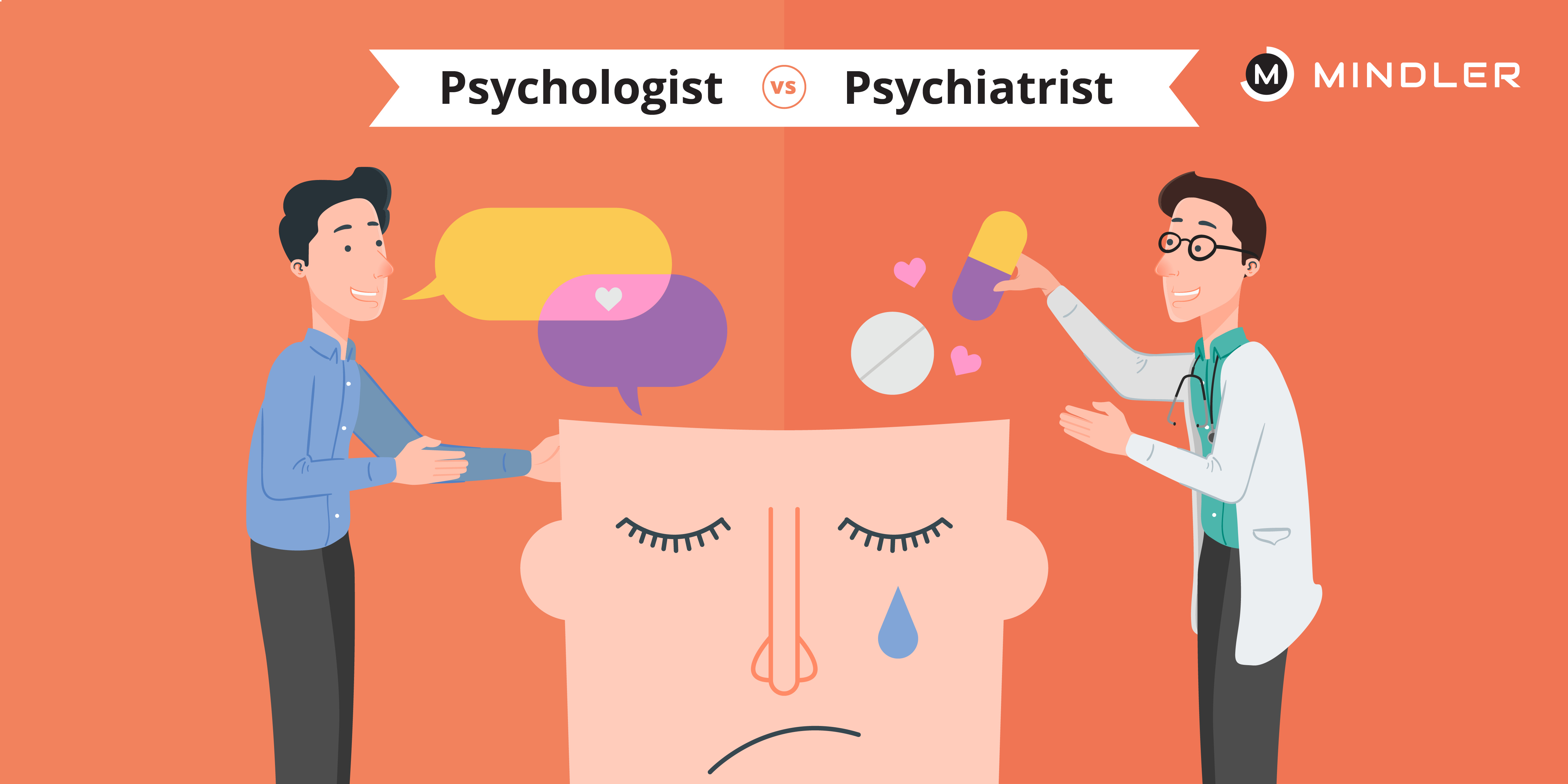Take the First Step Toward Healing with Elementa Psychologists Kew
Take the First Step Toward Healing with Elementa Psychologists Kew
Blog Article
Professional Psychologists Vs Psychiatrists: Key Distinctions You Need To Know
The distinction in between clinical psychologists and psychoanalysts is essential for individuals looking for mental wellness care, as each specialist deals unique expertise shaped by their instructional backgrounds and treatment approaches. This difference increases vital questions concerning which expert might be best matched for various mental health and wellness needs.
Educational Background
Numerous people looking for mental health services may question the differences in academic backgrounds in between scientific psychologists and psychoanalysts (clinical psychologists kew Melbourne). The differences are considerable and necessary for recognizing the duties each professional plays in psychological health treatment

On the other hand, psychoanalysts are clinical physicians (M.D. or D.O.) who complete a four-year medical level complied with by a residency in psychiatry, which lasts an extra four years. Their medical training furnishes them to recognize the biological elements of mental problems, permitting them to suggest medicines and offer a clinical viewpoint on therapy.
These varying educational paths emphasize the unique experience each professional gives the field, forming their strategies to medical diagnosis, patient, and treatment care (clinical psychologists kew Melbourne). Comprehending these distinctions is vital for people browsing the mental health and wellness system

Therapy Techniques
Diverse therapy approaches define the techniques of medical psychologists and psychiatrists, reflecting their distinct training and locations of know-how. Medical psycho therapists mainly use psychiatric therapy, using techniques such as cognitive-behavioral therapy (CBT), dialectical habits therapy (DBT), and psychodynamic therapy. Their focus gets on emotional and emotional evaluation, treatment, and the development of coping approaches to address various mental health conditions. They might collaborate with people, couples, or teams, customizing their healing techniques to the certain requirements of their clients.
On the other hand, psychiatrists are uniquely certified to detect and deal with psychological health problems via a mix of psychiatric therapy and pharmacotherapy. Their medical training permits them to prescribe medicines, which can be critical for handling conditions such as schizophrenia, bipolar illness, or extreme clinical depression. Psychoanalysts commonly take a more biomedical strategy, thinking about the organic, psychological, and social elements influencing a client's psychological health.

Function in Mental Healthcare
The functions of medical psycho therapists and psychoanalysts in mental health and wellness treatment are complementary, mirroring their distinct training and experience. Medical psycho therapists largely focus on the analysis, medical diagnosis, and therapy of emotional concerns via numerous healing methods, including cognitive-behavioral therapy (CBT), social therapy, and psychoeducation. Their training stresses understanding human actions, psychological functioning, and the healing procedure, allowing them to supply evidence-based treatments customized to specific demands.
In contrast, psychiatrists are clinical doctors that concentrate on the diagnosis and treatment of mental health conditions, typically utilizing a biomedical method. They can prescribe medicines to handle psychiatric signs and symptoms and are educated to consider the physiological facets of mental health and wellness, such as neurobiology and pharmacology. This medical perspective enables psychoanalysts to deal with complex Going Here cases that may call for a mix of medicine monitoring and psychotherapy.
Together, clinical psycho therapists and psychiatrists develop a detailed psychological health and wellness care framework, addressing both medical and emotional requirements. Cooperation between these experts guarantees that individuals obtain all natural treatment, inevitably improving treatment outcomes and enhancing the top quality of life for people experiencing mental health and wellness challenges.
Sorts Of Conditions Treated
While both scientific psycho therapists and psychoanalysts resolve a variety of mental health problems, their techniques and locations of know-how commonly determine the certain conditions they treat. Professional psychologists mostly concentrate on the assessment and therapy of emotional, behavior, and cognitive problems through psychotherapy. They often work with patients experiencing anxiety conditions, clinical depression, post-traumatic stress condition (PTSD), obsessive-compulsive disorder (OCD), and various individuality conditions. Their restorative strategies include cognitive-behavioral treatment, dialectical behavior modification, and various other evidence-based methods.
On the other hand, psychiatrists are medical physicians who can suggest medications and have actually specialized training in the organic facets of psychological health and wellness. They typically handle much more complex psychological problems that might call for pharmacological intervention, such as schizophrenia, bipolar illness, extreme clinical depression, and substance utilize problems. Psychoanalysts might integrate medication monitoring with psychotherapy yet normally concentrate on the clinical and biochemical parts of mental health problems.
Comprehending these differences can assist individuals seek the suitable treatment tailored to their details psychological health and wellness needs, guaranteeing they receive one of the most effective therapy for their conditions.
Insurance and Price Factors To Consider
Navigating insurance and cost factors to consider is an essential aspect for people seeking mental health solutions from clinical psycho therapists or psychiatrists. Both professions might accept different insurance strategies, yet the level of protection can vary considerably. Psychoanalysts, who typically suggest drug, might have various payment practices contrasted to clinical psycho therapists, who normally concentrate on psychiatric therapy.
Insurance coverage repayment for psychological solutions might be much more positive as a result of the medical nature of their method. People might come across greater co-pays or deductibles when getting in touch with i was reading this a psychoanalyst. On the other hand, medical psycho therapists might supply solutions billed under mental health advantages, which might cause lower out-of-pocket expenses, relying on the insurance company's policy.
Moreover, individuals should think about the frequency and duration of treatment sessions when reviewing costs. While psychiatrists could provide much shorter, medication-focused visits, medical psychologists often involve in longer sessions committed to restorative methods.
Eventually, understanding the certain regards to one's insurance coverage plan, consisting of network schedule, protection limits, and pre-authorization requirements, is essential. Clients are encouraged to call their insurance coverage company to clarify benefits and discover choices for budget-friendly mental wellness care.
Verdict
In summary, the differences in my blog between medical psycho therapists and psychiatrists are important for informed decisions regarding psychological wellness treatment. Educational background, therapy approaches, and roles in psychological health and wellness dramatically vary in between both careers. While medical psycho therapists primarily concentrate on psychotherapy, psychiatrists incorporate medicine monitoring into their technique. Comprehending these distinctions improves the capacity to select the proper expert based on specific demands, whether they entail treatment, medicine, or a combination of both for optimal psychological health and wellness outcomes.
The difference in between scientific psycho therapists and psychiatrists is crucial for people seeking psychological health and wellness care, as each expert offers one-of-a-kind knowledge formed by their academic histories and treatment approaches.The roles of clinical psycho therapists and psychiatrists in psychological wellness care are complementary, mirroring their distinctive training and experience.While both professional psycho therapists and psychoanalysts attend to a wide range of mental wellness problems, their techniques and areas of proficiency often dictate the details problems they deal with.Navigating insurance and expense considerations is an essential aspect for individuals seeking psychological wellness services from scientific psycho therapists or psychiatrists.In recap, the distinctions in between medical psychologists and psychiatrists are important for notified decisions pertaining to psychological health and wellness treatment.
Report this page